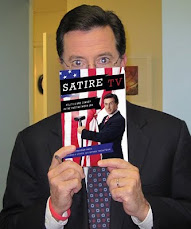Last week I saw 12 Years a Slave and I’ve been thinking
about the film and my reactions to it since. I haven’t spent much time reading
what has been written about it, aside from recognizing its high critical
metascores (which got me in the theatre in the first place) and a blog or two
encouraging me to see it in the theatre, lest I never get the nerve to watch it
through on DVD or Netflix. One of the things that I have read about the film,
and therefore expected, was the profound emotional impact it can have on
viewers, of the knocking-the-wind-out-of you sort.
It didn’t do that to me. It was an emotionally powerful and
aesthetically successful film, no doubt, and I don’t really have anything I
would fault it for. It just didn’t devastate me the way it has others, and I
wonder why that might be. Maybe it’s because I’ve been acquainted with the
specificities of the depravities of slavery since my college years, from
reading Uncle Tom’s Cabin as an undergrad to various texts in African-American
Studies classes as a grad student. I also think—maybe—that people outside the
south are caught off guard by the film in a way they hadn’t expected, and this
I think is a central formal and thematic success of the film. What I mean is,
it is one thing to acknowledge and assume as a given in a general moral sense
the evil and wretchedness of slavery. It is another thing to be acquainted with
the specificities of the everyday acts of human depravity that were part and
parcel of slavery. By this I mean the tearing apart of families, rape, torture,
murder—the things that 12 Years a Slave rightfully portrays as everyday
occurrences. It is yet another thing entirely to recognize that you bear some
moral responsibility for such acts as indirectly benefiting from them or
looking away from them as not affecting you—whether in the historical past or
the present. The film isn’t so much about the evils of slavery, as it is about
how looking the other way from something one believes is wrong isn’t good
enough.

That’s one way I think the film is especially interesting, serving as a
sort of necessary, catharsis-free companion piece to Django Unchained (a film I
liked and think might be Tarantino’s best). So here’s where I could go and read
everything that has been written about 12 Years a Slave and not write what I
think about it. But I won’t because this is blogging. In Django, you witness
casual brutalities of the most grotesque sort. But there is comic catharsis
(the KKK hilariously arguing about how they can’t see out the eyeholes of their
hoods!) and violent catharsis, again and again, it being a Tarantino film.
Which goes for the comic catharsis as well, I guess. These relieve feelings of
rage, shame, disgust, etc.
In 12 Years a Slave, there is no violent revenge. You know
all along he will get back to his family. The suspense lies in anticipating
what the next humiliating or horrifying act he will witness or have inflicted
upon him will be. That builds and builds until you are just hoping not-of-the-south-and-maybe-therefore-abolitionist
Brad Pitt will follow through and get word to the right people who will get
Solomon out. The intertitles tell you he lost his legal cases against the
people responsible for his kidnapping. So no nonviolent revenge, either. No
catharsis.
The formal style of 12 Years a Slave is not very
presentational—none of the showy camera or editing work you’d expect from, say,
Tarantino. But there is one scene when it is formally deliberate (and the one
I’m sure others have and will write about! Probably will end up in a class or
two as well!). About midway into the film Solomon fights with an abusive
overseer/laborer played by Paul Dano, who quickly enlists his pals to lynch him,
putting a noose around his neck and beginning to hoist him on a tree branch.
They are stopped by a higher authority (the overseer’s overseer?) who assesses
Solomon as property more valuable than Dano’s shame. So the lynching is
stopped, but Solomon is left precariously almost hanging, balancing on his toes
in the mud. This goes on for minutes (in a single wide shot) until other slaves
starting coming out of hiding and go back to work. The sense of the events
unfolding in real time, without editing compressing anything, really
contributes to a sense of witness.
Another way in which the film effectively represents the
pervasiveness of the everyday evils of slavery is Solomon happening upon the hanging
of two slaves just after he has cut through some trees, presumably to attempt
to run away. The sense that there is the threat of violent death (or at least
violent abuse) at anytime, that it is just below the surface makes the thought
of any respite, much less escape, improbable.
This is one of the ways I think the film interestingly plays
with screen/story time. The title announces “12 years” but scenes like the two
above provide intense representation of moments or incidents—there are no
montages of time passing. Another scene (the one I expect to be in the Oscar
clip) occurs at a funeral. Solomon stares at the grave while others sing, we
watch his face as he slowly gives way to the emotion and joins in the
singing—there is some catharsis there for him, maybe. Or maybe instead it is gathering determination to survive.
When Solomon is finally rescued, my sense was that a number
of years had past since the previous scene when we had just seen him. But it
didn’t really matter whether I was right or wrong. He has lost track of time,
too, I believe mentioning at some point that he has been gone several years.
When he is reunited with his family, the aging of his children and especially
the birth of a grandchild finally indicates the real passage of time. This is
when the weight of the arbitrariness of the boundaries that have done this
sinks in, too. North/South, Free/Slave, Friend/Kidnapper, Black/White, Slave
Owner/Tolerant of Slavery, Doing something/Not doing something. One passes into
the other without knowing.
The final intertitles underscore a sense of the
arbitrariness of power and justice, history and memory. Solomon is free, but
they tell us he loses his court cases against those who kidnapped and sold him
into slavery because he lacks the legal rights to testify against them. He
writes his book and becomes a popular speaker in the abolitionist movement.
Then no one knows what happens to him, how he died or when.
So no closure there, either.
 |
| Michael Williams is in 12 Years a Slave, but he doesn't get to do anything Omar-like. |












